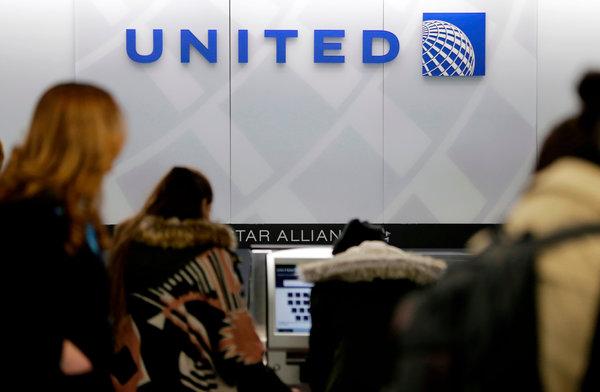
After a United Airlines employee was charged with disorderly conduct for allegedly using racial slurs, the company said it had “zero tolerance for discrimination of any kind.”CreditSeth Wenig/Associated Press
A United Airlines employee accused of directing racial slurs at a customer has been charged in Texas with disorderly conduct, according to court documents.
The charge, a misdemeanor, was filed in Municipal Court for Houston in March, a month after the Houston Police Department issued the employee, Carmella Davano, a citation for profane and abusive language in a public place. She was accused of repeatedly calling Cacilie Hughes, a black woman and United customer, “a monkey” and “a shining monkey.”
Ms. Hughes, an actress and co-founder of the Big Sister Little Sister Mentoring Program, a nonprofit group, had returned home to Houston on Feb. 26 from a speaking engagement in Michigan when she encountered Ms. Davano in the United terminal at George Bush Intercontinental Airport.
“I walked up to the woman, Carmella, and said, ‘Hi, do you have a refund code available?’ and she started yelling at me, calling me a monkey,” Ms. Hughes said in a phone interview on Monday. “I was humiliated, I was crying and I was the only black woman in the area.”
Ms. Hughes, 31, said that she asked another United employee to call the police and that the employee refused to help, so she called the police herself.
A representative of the Houston Police Department said officers went to the scene, where two witnesses said they saw and heard Ms. Davano direct the slurs at Ms. Hughes.
United said in a statement: “We have withheld the employee from service since the night of the incident pending an internal investigation. Upon conclusion of the investigation, we will take any and all appropriate corrective action up to and including termination.”
Ms. Davano did not respond to phone calls and a Facebook message request for an interview.
Assertions of racism on airlines have made national headlines in recent years.
In 2017 the N.A.A.C.P. issued a travel advisory warning African-Americans “to exercise caution, in that booking and boarding flights on American Airlines could subject them disrespectful, discriminatory or unsafe conditions.” A year ago, American was sued after it did not divert a plane when a black passenger had a pulmonary embolism; she later died.
“What you see is resistant black folk merely asking for their humanity to be recognized, their rights to be in this space as a customer,” said Anyabwile Love, an Africana studies professor at the Community College of Philadelphia. “There’s no space for that to be allowed. What you find is that sometimes some white people see that as an affront to the power that they have.”
United has encountered its own troubles. In May, a Nigerian woman sued the airlines, saying she was kicked off a flight after a white passenger said she smelled. And in December, Eric Murdock, a black former N.B.A. player, sued the airline for $10 million for “race-baiting” after he said a white flight attendant prevented him from switching seats on a flight.
A lawyer for Ms. Hughes, Benjamin Crump, said United had a pattern of failing “to train employees to interact with minority customers.”
In its statement, United said, “At United, we proudly hold ourselves to the highest standards of professionalism and have zero tolerance for discrimination of any kind.”






